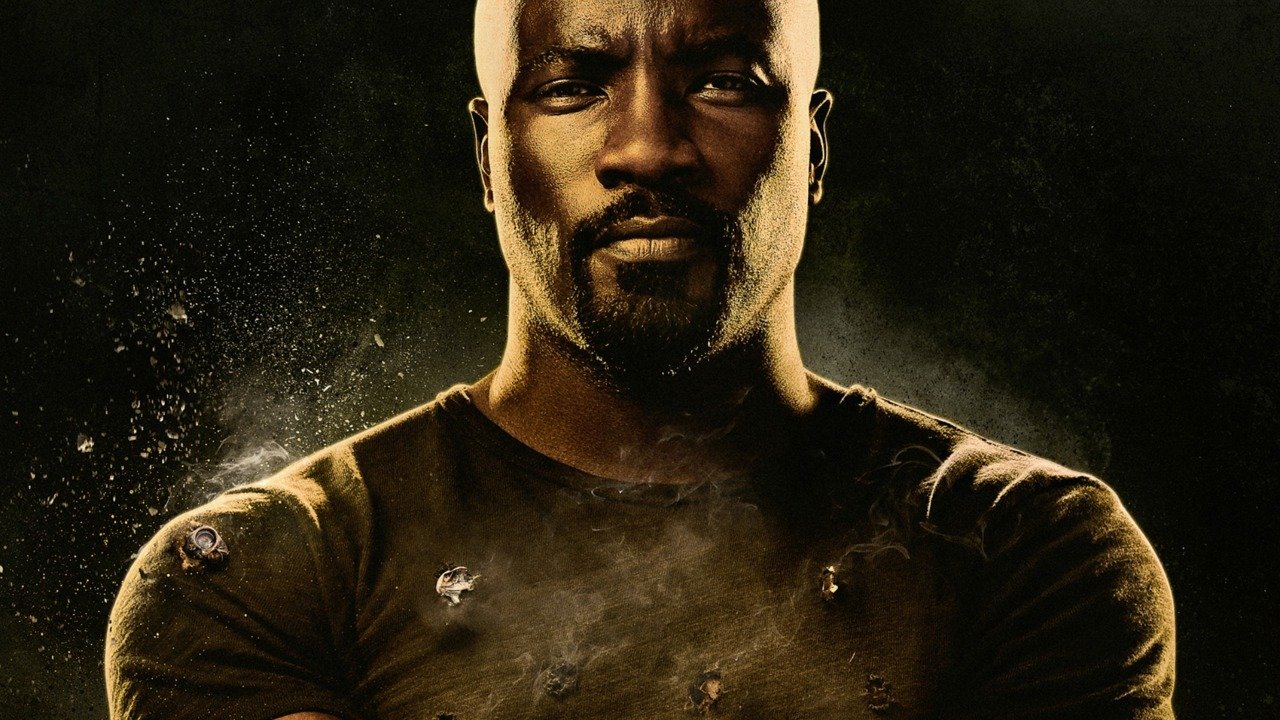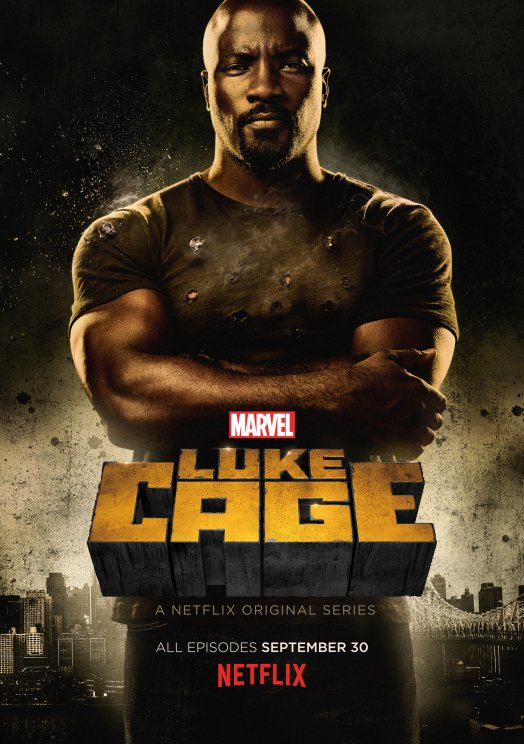You can’t talk about Luke Cage without talking about race. That’s not even a result of being a TV critic, where the job is to find meaning in pop culture – Luke Cage is clearly a show about blackness. It owes just as much to Black Lives Matter as it does to Marvel grandfather Stan Lee. It’s distinctly of the moment, tackling respectability politics and police brutality in a way you rarely see on contemporary genre TV. Luke Cage isn’t the most subtle, nor the most well-told, but it’s still a cultural flashpoint worth experiencing.
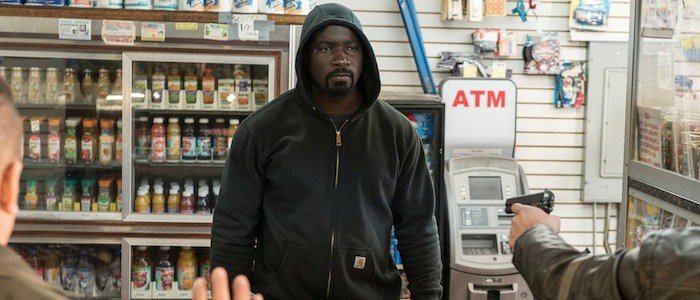
Luke Cage takes place after Jessica Jones, but you’d be hard-pressed to find any evidence of that, aside from a handful of standard MCU tertiary mentions. Eponymous Luke Cage (Mike Colter) is hiding out in his late wife’s old Harlem neighborhood, doing odd jobs and staying low. A series of gang incidents forces him into action, taking up the role of Harlem’s protector at the behest of an old friend.
This is maybe Luke Cage’s biggest issue – the whole “Harlem’s protector” thing happens fairly early in the series. Cage jumps into a traditional character arc by episode 2, and hangs around there until the season finale. He plans to leave the city once Harlem is safe from Cornell Stokes AKA “Cottonmouth” (Mahershala Ali) and his criminal operation, but he does plenty of do-gooding until then. Although much is made of Cage fully embracing the hero business at the end of the season his actions remain functionally the same.
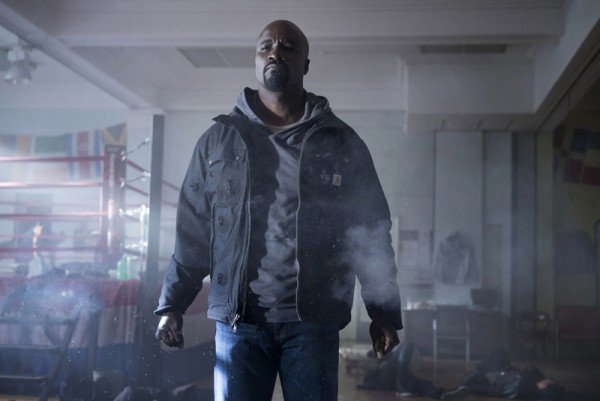
Which isn’t to say Harlem exclusively harbors the stagnant. Both Detective Misty Knight (Simone Missick) and corrupt Harlem politician (and Cottonmouth’s cousin) Mariah Dillard (Alfre Woodard) receive strong arcs. Dillard’s tale belongs in a modern Shakespeare retelling, as she funds her City Council programs with dirty money. She pushes Cottonmouth towards murder, advising him on criminal schemes all while putting on a brave public face in service of her “New Harlem Renaissance” initiative. As the story progresses, Dillard falls deeper into crime as the show examines whether she ever truly meant well. It’s compelling stuff, even if her role eventually takes a backseat to arms dealer Diamondback (Erik LaRay Harvey).
Diamondback and Cottonmouth are both charismatic in their own way. but Ali’s performance as Cottonmouth is the show’s highlight. (Ali has never turned in a bad performance, so that’s to be expected.) Unlike Fisk and Kilgrave, Cottonmouth’s violence feels learned, not innate – a result of his upbringing – whereas his charisma is buried deep in his bones. Comparatively, Diamondback is a violent jerk who hates Luke Cage for reasons the audience can never truly sympathize with. Cottonmouth is a bad guy, Diamondback is a plot device for the hero to overcome.
The less said about Misty Knight and Missick’s performance, the better. Her role as a black woman serving in the police force is important in the context of Luke Cage’s larger ideals. Knight is trying to do good from within the system, a system that excuses police-sanctioned violence and regularly fails to make any legitimate change. And it’s a good idea! The story of Misty Knight deserves its own show. But Missick only finds the character towards the end of the season, spending a good 7-8 episodes delivering an inauthentic performance.
Even worse, just about everything from the NYPD’s perspective could’ve been cut fairly easily. There’s an arc about corruption that ultimately doesn’t go anywhere, plus there’s the meaningless time Knight and her partner spend investigating Luke Cage. The audience learns everything through flashbacks, so none of the investigation means anything – which might just be a Marvel Netflix problem. Daredevil and Jessica Jones also had tertiary characters whose sole purpose was to investigate things the audience already knew . Come to think of it, Cottonmouth and Diamondback are both well-spoken villains in suits who are prone to fits of violence a la Kilgrave and Fisk. Hmm…
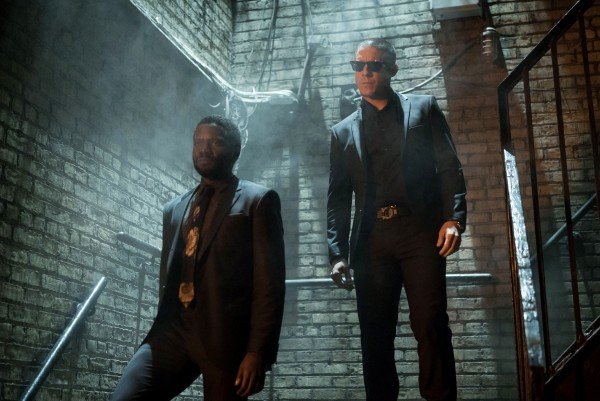
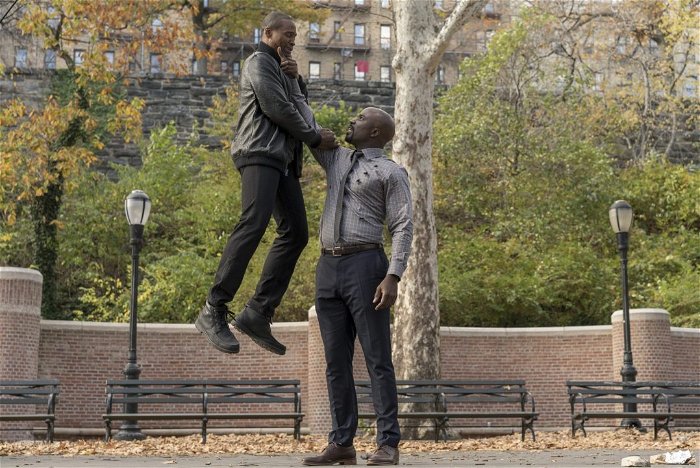
It might sound cliché, but the most important character in Luke Cage is Harlem. To Cottonmouth, Dillard, and Cage, the neighborhood is the most important prize. The final battle between Cage and Diamondback takes place on a city block, encompassed by regular citizens cheering on their hero. It feels like the strongest example of a “street-level” superhero story to date, if only because the stakes feel refreshingly small. There’s no doomsday weapon or army of ninjas, it’s a “battle for Harlem’s soul” – literalized by an expository news report.
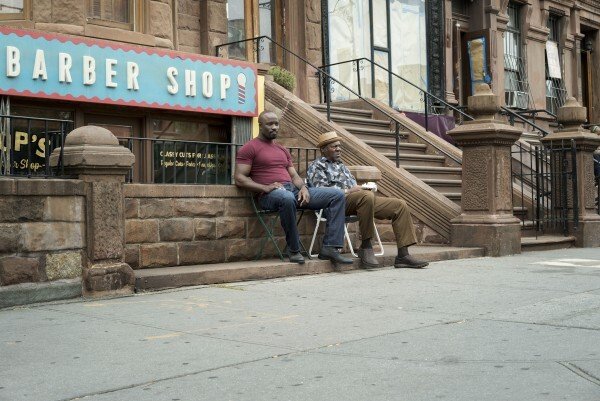
Look, direct racial themes in superhero TV are better than none at all. Making Cage’s superhero costume a hoodie is a clear homage to the Trayvon Martin shooting, but instead of letting that idea stand on its own, characters repeatedly verbalize the connection for the audience. At first blush, the show’s connection between Black Lives Matter iconography and Dillard’s corrupt politician seems like a condemnation of the movement, but the tenets of the movement are well-represented by the ordinary people of Harlem. Politicians may seek to exploit idealism to further their own plans, ultimately the onus for change requires the watchful eye of the people. Luke Cage’s violent upheaval of Harlem’s corrupt underbelly works because it takes place outside the system. No matter the color of its figureheads, the system is rigged.
Structurally, Luke Cage doesn’t totally work – it’s somehow both rushed and too long, giving several episodes to dealing with an injury but eventually chopping the crime story off at the knees. Still, it’s absolutely worth seeing, even if you’re just a Marvel fan looking for the next chapter in the Defenders saga. For those looking for a little more to chew on in your sci-fi TV, you’ll certainly find something to love in Luke Cage, so long as you can accept an odd dramatic structure.
